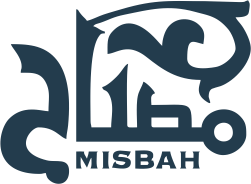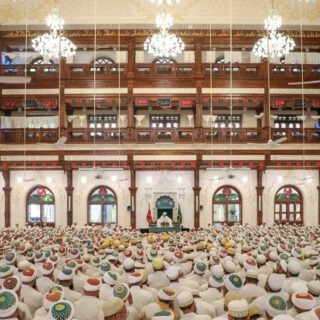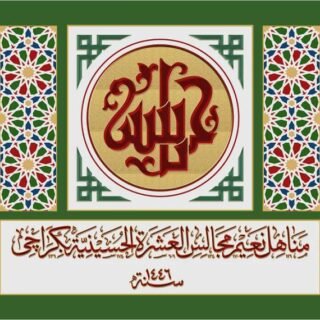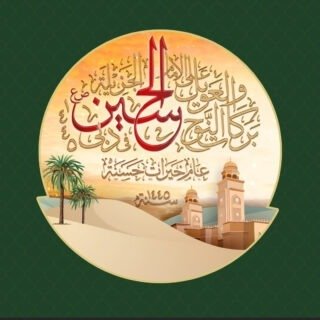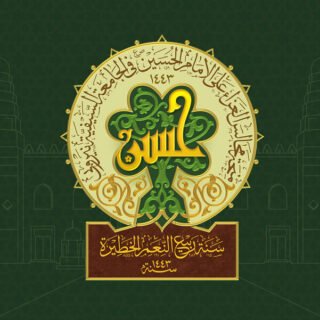A mumin attending any deeni majlis witnesses a host of rusoomaat that substantially and unfailingly reflect the elements of Thaqaafat Fatimiyah. Having talked about sharbat and wadhawani rasam, the focus of this article is on najwa.
Najwa is a word almost each mumin, muminah and their children are acquainted with. Mumineen go to great lengths and make special arrangements to procure exclusive envelopes for najwa and decorating the najwa trays. Young children excitedly prepare their najwa envelopes and decorate their cards to be offered along with najwa.
Shehre Ramadan is the month when mumineen world over cleanse their capital through waajebaat which has najwa as one of its components.
Najwa is a humble hadiyah (gift) offered by a mumin to zamaan naa sahib as a sign of veneration and as a means of attaining proximity to him. This rasam (tradition) is mentioned in clear words in the Holy Quran:
يايها الذين اْمنوا اذا ناجيتم الرسول فقدموا بين نجواكم صدقة ذلك خير لكم واطهر
O Mumineen! Whence you intend to have an audience with the Rasool, then offer najwa. That will be better and purer for you.
The above verse is in the form of a directive for mumineen to offer najwa whenever they come before their maula, the Dai and representative of al-Rasool. Hence, offering najwa has a Quranic injunction.
Najwa in Arabic means to talk with someone in private. The word munajaat; meaning the conversation between Allah and His wali TUS, is derived from najwa.
It is narrated by Amirul Mumineen Maulana Ali AS that when the aayah of najwa was revealed, he had one dinar with him. Forthwith, he exchanged that dinar for ten dirhams. Then after, whenever he came to the presence of Rasulullah SA he would offer one dirham. Subsequently, he used all the ten dirhams for the purpose of najwa. Till then, none of the muslimeen had acted in accordance with the divine command of offering najwa to Rasulullah SA.
Another narration was delivered by al-Dai al-Ajal Syedna Mohammed Burhnanuddin RA in one of his discourses. He said,
When the najwa aayah was revealed, Amirul Mumineen Maulana Ali AS was the first to abide by it. He had a vessel which he sold for forty dinars. Then, he approached Rasulullah SA forty times with different queries and questions; each time offering one dinar. Then, Syedna Mohammed Burhanuddin RA added his words of Ilhaam:
امير المؤمنين ني شان ديكھو! امر اْيو تو اْپ كتنا جلدي سي امر لئي اٹھے چھے، بيجا سگلا اٹكي گيا.
Behold the virtue of Amirul Mumineen AS! He followed the divine command instantly; while others hesitated.
Mumineen offer najwa to Dai al-Zaman Syedna Aali Qadr Mufaddal Saifuddin TUS on various occasions; like eid, milad, shehrullah, while doing qadambosi, etc. The fact is, mumineen look forward to instances where upon they could offer najwa.
Najwa is not limited to its materialistic interpretation but rather encompasses much loftier ideals. In one of his verses al-Dai al-Ajal Syedna Mohammed Burhnanuddin RA writes,
دُمُوْعُنَا عَلَى الْحُسَيْنِ غَدَتْ نَجْوٰى عَلَيْهَا لِلْمَعَادِ الْعِمَاد
Our tears on Imam Husain AS are our najwa; the mainstay of our ma’aad (return [to the heavenly abode]).
Najwa is commonly known as “Najwa al-Shukr”. The term itself conveys the purpose of najwa. It is an expression of gratitude for the innumerable blessings bestowed upon us by Allah Ta´ala and His wali TUS.
The blessings and benedictions of Allah Ta´ala and His wali TUS on a mumin are of such magnitude that all our acts of gratitude are ultimately insufficient. Najwa is but an expression of our mohabbat and walaayat.
May Allah grant Syedna Aali Qadr Mufaddal Saifuddin, the custodian of Thaqafat Fatimiyah, a long life till the Day of Qiyaamat. Amin.
Note: The correct term is “Najwa al-Shukr”, not “Najwatu al-Shukr.”
